Choosing a God or Goddess: Why the Gods You’ve Chosen Might Not be Right
Choosing a god
or goddess isn’t as easy as people sometimes make it. What’s the big deal, you say? You worship or honor Odin. Or maybe Freyja. Or Thor. But what if I told you that the god(s) or goddess(es) you’ve latched onto might not be the right gods or goddesses for you? This is especially true for the newcomers to Heathenry, but even us “old timers” can make the mistake. Let me explain.
Choosing a God in Heathenry
One of the great things about being a Heathen is that you don’t have to gravitate toward a particular god or goddess. Because we’re polytheistic, we have many different gods, ancestors, and wights we can choose from. Unlike other religions, you don’t have to choose a god or goddess. You can honor or worship them all. Nobody—at least not me—is telling you who calls to you. (Never mind those recon wankers; they’re not the Asa-popes they think they are.) At the same time, you can choose one or two whom your venerate more, while still maintaining good relations with the others. Or you can pick and choose from different pantheons, if you desire. There’s a historical precedence for that.
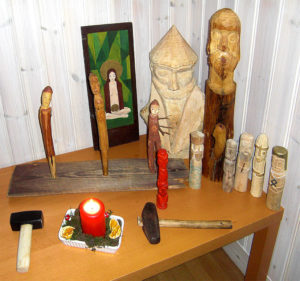 Some Heathens in history incorporated other gods and goddesses into their worship as they learned of them from other tribes, kindreds, and even other ethnicities. The Vanir are probably the best known for this. Some scholars believe that our ancestors added another tribe’s gods and goddesses that became the Vanir. Even when Christianity came to our northern ancestors, many tried to incorporate Jesus as another god in the pantheon. Of course, that didn’t really work too well, but we can see by the Icelandic Cross, jewelry makers were catering to both sides for a while.
Some Heathens in history incorporated other gods and goddesses into their worship as they learned of them from other tribes, kindreds, and even other ethnicities. The Vanir are probably the best known for this. Some scholars believe that our ancestors added another tribe’s gods and goddesses that became the Vanir. Even when Christianity came to our northern ancestors, many tried to incorporate Jesus as another god in the pantheon. Of course, that didn’t really work too well, but we can see by the Icelandic Cross, jewelry makers were catering to both sides for a while.
Newbie Choices in Gods and Goddesses
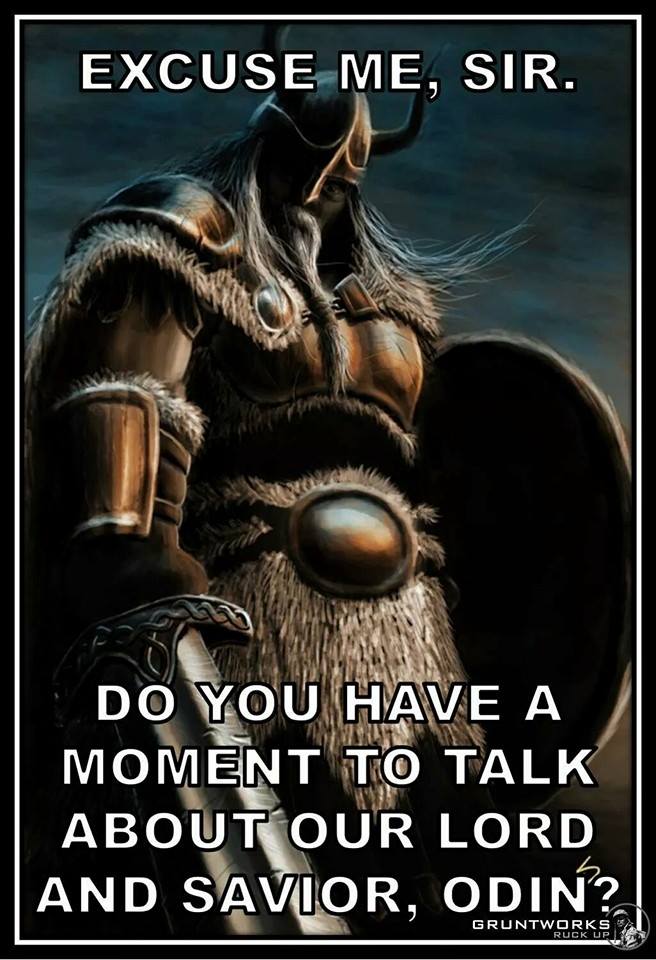 A lot of newbie Heathens tend to go with Odin, Thor, Freyja, or Loki, largely because of popular media. This is fine, and those gods are good within their own rights (although people might argue about Loki), however, that’s pretty much how far those new Heathens take it. They look at Odin as the All-Father in the same way that Christians look at Yahweh as “God the Father.” This comparison is laughable—or, maybe not, given the mercurial temperaments of both deities—when they are different in a number of ways. There are more gods and goddesses that may be far more influential and far more relevant in one’s life than the All-Father.
A lot of newbie Heathens tend to go with Odin, Thor, Freyja, or Loki, largely because of popular media. This is fine, and those gods are good within their own rights (although people might argue about Loki), however, that’s pretty much how far those new Heathens take it. They look at Odin as the All-Father in the same way that Christians look at Yahweh as “God the Father.” This comparison is laughable—or, maybe not, given the mercurial temperaments of both deities—when they are different in a number of ways. There are more gods and goddesses that may be far more influential and far more relevant in one’s life than the All-Father.
Odin isn’t all-mighty. Sure, he’s a god to be reckoned with if he’s angry at you, but if he hasn’t taken specific interest in you, he probably won’t care if you worship him or not. Same goes with our other gods. Most don’t bother when it comes to mortals. They have more godly things to deal with than our day-to-day whining and supplication. That being said, there are gods and goddesses who may take interest in you, but you may miss their calls if you’re always thinking about the more popular gods from modern media. Which is why, if you’re a newbie, you need to do your research about the other gods and goddesses.
Don’t Forget the Wights and Ancestors
Choosing a god is important, but so is recognizing that the gods aren’t the only supernatural creatures in our beliefs. The wights and ancestors tend to take more notice in us, because they’re often more local and/or personal than gods and goddesses are. Because they are closer to us than many of the gods, by making friends with them and honoring them we can often receive both aid and advice from them.
Who are your Ancestors?
Your ancestors are not only your parents and grandparents, but their parents, grandparents, great-grandparents, and so on. They are the people whose blood runs through your veins. Without them, you would not be alive today.
grandparents, great-grandparents, and so on. They are the people whose blood runs through your veins. Without them, you would not be alive today.
Ancestor veneration or ancestor worship (if you want to call it that) is a big part of Heathenry. Many Heathens gain strength from those who came before us. Some Heathens go through the whole genealogy thing too.
Now, granted, some of your ancestors were probably not people whom you should show respect to. If you come from an abusive home, for example, there’s probably no love loss there. You don’t have to respect or honor them. Look to your grandparents or some other ancestor in your line for help. At the same time, if you were adopted, don’t worry about who your ancestors are, especially if you don’t know your birth parents. Look at the ancestors of the people who adopted you and their family. You are part of that family now and you may find an ancestor among them who will be your mentor and helper in times of need.
Who are the Wights?
I’ve written about Wights recently, so I don’t need to go there. That being said, the local Wights are often the tutelary spirits of the land that are often familiar with you and your situation. Some will live in your house; many prefer being outdoors. They consist of many different types including Elves, Hidden Folk, and other spirits.
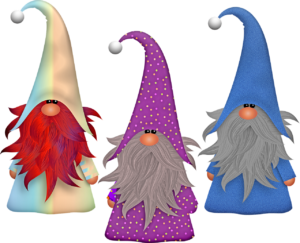 The Wights can be very helpful or harmful, depending on their nature and how you treat them. There are rules to make the Nisse happy, for example. Nisse or Tomte like having porridge with milk and a pat of butter on either Winter Solstice or Christmas, depending on which lore you follow. If you skimp (no butter) or don’t leave the offering, they can cause havoc.
The Wights can be very helpful or harmful, depending on their nature and how you treat them. There are rules to make the Nisse happy, for example. Nisse or Tomte like having porridge with milk and a pat of butter on either Winter Solstice or Christmas, depending on which lore you follow. If you skimp (no butter) or don’t leave the offering, they can cause havoc.
Part of being a Heathen is making friends with these spirits and helping them, just as they might help you.
So, Where am I Going with This?
I am not telling you to abandon your worship of the popular gods and goddesses. Instead, I’m suggesting—especially if you’re a newcomer to Heathenry—to consider opening yourself to other gods as well as the ancestors and the Wights. At the very least, you will have a deeper understanding of your faith and what your ancestors believed in. And who knows? Maybe there are gods and goddesses you haven’t considered honoring who are actually closer to you than you knew. Choosing a god or goddess that is lesser known, or even a wight or ancestor, to honor or worship with your more popular gods may encourage a deeper and more profound relationship.
As always, let me know what you think in the comments.
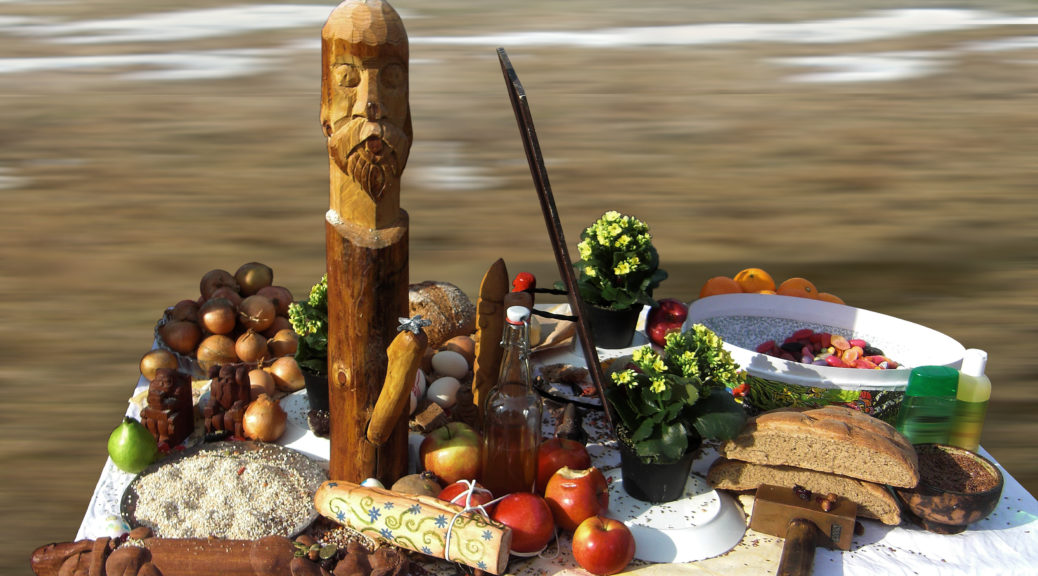
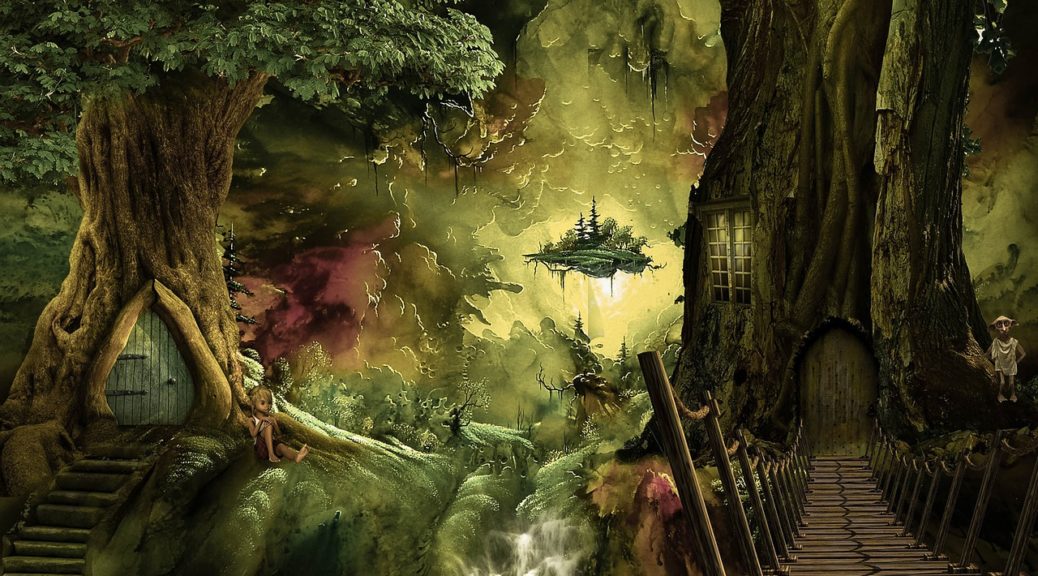


 It’s my guess—and you folks can argue with me over this—that most Heathens are pretty convinced that wights aren’t corporeal creatures, but more likely spirits. Or maybe they consider wights the personification of the natural forces at work. In other words, they aren’t really singular entities. Some people feel that they are ancestors—and yes, there are good cases for this. And some people believe them to be a little below gods. Again, there is a case for that as well.
It’s my guess—and you folks can argue with me over this—that most Heathens are pretty convinced that wights aren’t corporeal creatures, but more likely spirits. Or maybe they consider wights the personification of the natural forces at work. In other words, they aren’t really singular entities. Some people feel that they are ancestors—and yes, there are good cases for this. And some people believe them to be a little below gods. Again, there is a case for that as well.
 Although Tyr is my main god, sometimes other gods step into my life in a big way. It’s not uncommon for me to hear from Loki, Skadi, Thor, and Freyja, but lately Freyr has been making himself known. It’s not that Tyr isn’t important–it’s just that Freyr needs to assert himself in my life. If you’ve ever had one god step into your life
Although Tyr is my main god, sometimes other gods step into my life in a big way. It’s not uncommon for me to hear from Loki, Skadi, Thor, and Freyja, but lately Freyr has been making himself known. It’s not that Tyr isn’t important–it’s just that Freyr needs to assert himself in my life. If you’ve ever had one god step into your life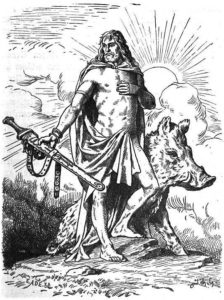 his father. Given that the Northern peoples relied heavily on the sea for trade and raiding, it’s little wonder an ocean god would also be considered a god of wealth.
his father. Given that the Northern peoples relied heavily on the sea for trade and raiding, it’s little wonder an ocean god would also be considered a god of wealth. 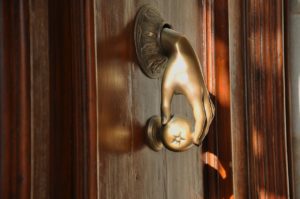 One thing to keep in mind is to pay attention to what the new god or wight has to say, even if they simply show up on your doorstep unannounced. Maybe you don’t have a problem that needs their expertise–yet. Maybe they know something you don’t and are there to help you through something which will be going on in your life. Still, other gods simply show up uninvited because you’ve piqued their interest for some reason.
One thing to keep in mind is to pay attention to what the new god or wight has to say, even if they simply show up on your doorstep unannounced. Maybe you don’t have a problem that needs their expertise–yet. Maybe they know something you don’t and are there to help you through something which will be going on in your life. Still, other gods simply show up uninvited because you’ve piqued their interest for some reason.
 pray for their god or gods to make things better when something bad happens. Or they pray to whatever wights and spirits in the hopes that things will improve. Prayer gives people a sense that they are doing something to change the situation. But, they’re not. Not really.
pray for their god or gods to make things better when something bad happens. Or they pray to whatever wights and spirits in the hopes that things will improve. Prayer gives people a sense that they are doing something to change the situation. But, they’re not. Not really. Now, before I get into my rant, let me first say that I have the utmost respect for the Native Americans. These people have been treated horribly–and are still being treated horribly–by the United States government. These people have, in many cases, been stripped of their culture, language, and religion, not to mention their freedom and their lives. Even into the 1950s and 1960s, children were being stolen from their parents, put in orphanages, and then sold to white people for a mere donation. I’ve known plenty of people with Native American ancestry and I respect them highly. What was done to their people is unconscionable.
Now, before I get into my rant, let me first say that I have the utmost respect for the Native Americans. These people have been treated horribly–and are still being treated horribly–by the United States government. These people have, in many cases, been stripped of their culture, language, and religion, not to mention their freedom and their lives. Even into the 1950s and 1960s, children were being stolen from their parents, put in orphanages, and then sold to white people for a mere donation. I’ve known plenty of people with Native American ancestry and I respect them highly. What was done to their people is unconscionable.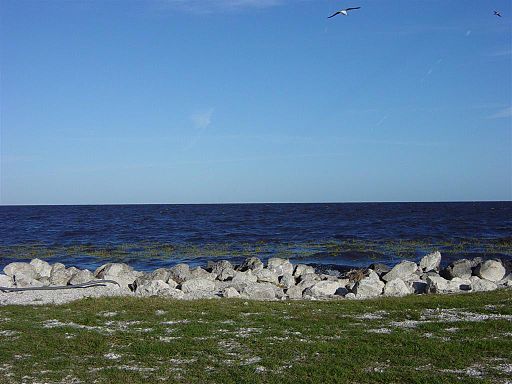 to control the lake’s waters. The lake, from what I understand, has a containment ring and
to control the lake’s waters. The lake, from what I understand, has a containment ring and  let me remind you all that
let me remind you all that  walk, I’d agree with you. It’s a good media promotion and one that will work given the nature of the situation. (Pardon the pun.) But prayer only goes so far, and
walk, I’d agree with you. It’s a good media promotion and one that will work given the nature of the situation. (Pardon the pun.) But prayer only goes so far, and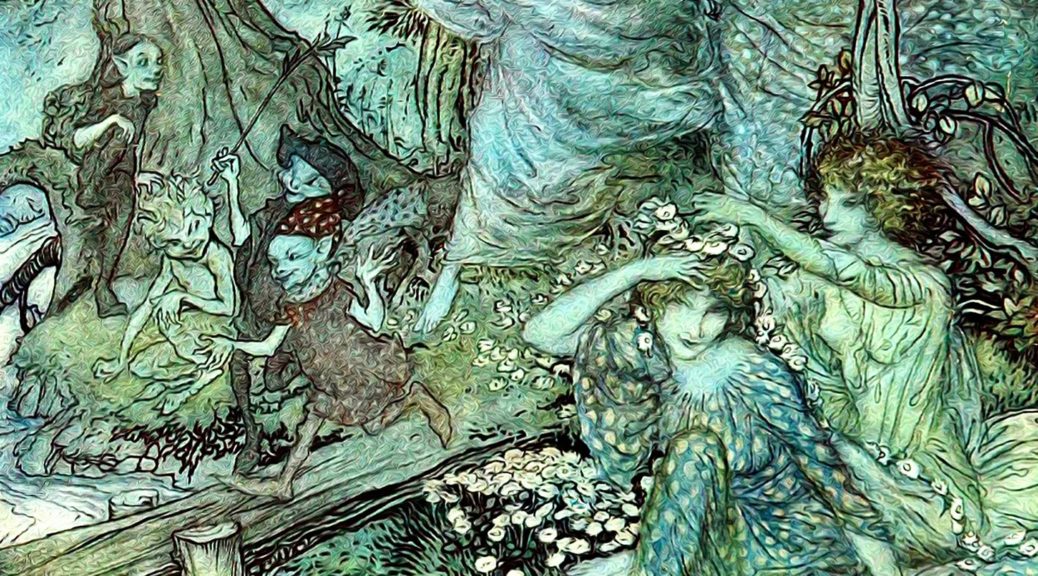
 Historians used to look at folk tales and fairy tales as cute stories to tell children, but in light of current evidence, maybe they were true. I’m talking about other races like the Elves and Wights whom we show our respect. Maybe there is a collective unconscious like Jung proposed. Perhaps we’re remembering other races through the passage of time? Stick with me on this, and maybe I can offer a scientific and rational explanation for our stories.
Historians used to look at folk tales and fairy tales as cute stories to tell children, but in light of current evidence, maybe they were true. I’m talking about other races like the Elves and Wights whom we show our respect. Maybe there is a collective unconscious like Jung proposed. Perhaps we’re remembering other races through the passage of time? Stick with me on this, and maybe I can offer a scientific and rational explanation for our stories. What Races Coexisted with Homo Sapiens?
What Races Coexisted with Homo Sapiens?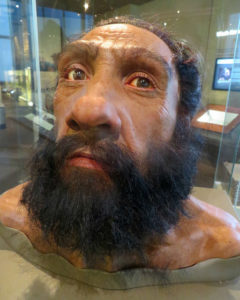 amongst the two species
amongst the two species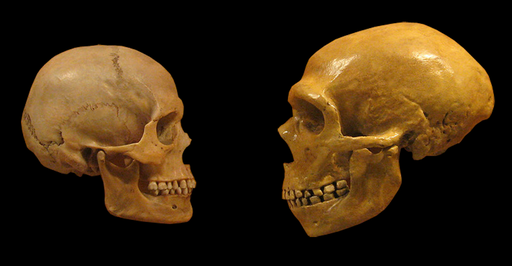 The Neanderthals were heavier set and tended to hunt close up against some pretty dangerous prey, like mammoths. That meant that they suffered some pretty serious injuries. Their heavier bodies, bigger chests, and large noses gave them the ability to live in colder climates. They had adapted to their environment successfully, which probably put our Homo sapiens ancestors in awe. Homo sapiens had evolved in hotter climates, making the colder climates our ancestors entered a real challenge in a lot of ways.
The Neanderthals were heavier set and tended to hunt close up against some pretty dangerous prey, like mammoths. That meant that they suffered some pretty serious injuries. Their heavier bodies, bigger chests, and large noses gave them the ability to live in colder climates. They had adapted to their environment successfully, which probably put our Homo sapiens ancestors in awe. Homo sapiens had evolved in hotter climates, making the colder climates our ancestors entered a real challenge in a lot of ways.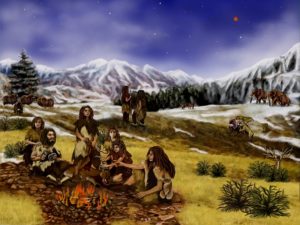
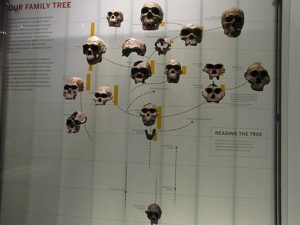 humans bred with them and that
humans bred with them and that  with their own progeny, hoping to fool humans. It’s believed that these changeling stories are in existence to explain birth defects and
with their own progeny, hoping to fool humans. It’s believed that these changeling stories are in existence to explain birth defects and 


 Being mindful and paying attention to the land opens a whole new world of experiences you never knew existed. You start noticing not only the cooler temperatures of autumn setting in, but also the increase or decrease in humidity that follows the change. Maybe you start seeing stratus clouds and high cirrus replace the fluffy cumulus. Maybe you see a shift in the bird population, the increase or decrease of certain insects, or even the shift in the quality of light you get. Instead of noticing the latest fall fashions creeping into people’s wardrobes, you notice how the squirrels are moving from tree to tree to gather food. You may see different species of birds. If you live in a place with deer, you may see a shift in their foraging.
Being mindful and paying attention to the land opens a whole new world of experiences you never knew existed. You start noticing not only the cooler temperatures of autumn setting in, but also the increase or decrease in humidity that follows the change. Maybe you start seeing stratus clouds and high cirrus replace the fluffy cumulus. Maybe you see a shift in the bird population, the increase or decrease of certain insects, or even the shift in the quality of light you get. Instead of noticing the latest fall fashions creeping into people’s wardrobes, you notice how the squirrels are moving from tree to tree to gather food. You may see different species of birds. If you live in a place with deer, you may see a shift in their foraging.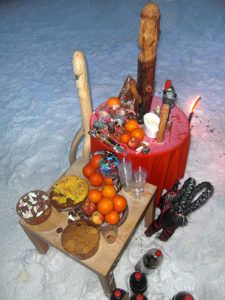 gods without all the mumbo-jumbo. In fact, I suspect it’s the best way to get in touch with the gods. You don’t get a conversation with the gods from mumbling prayers or sacrificing goats usually. You get that from opening yourself to them and seeing who pops up. That requires paying attention to them and listening to what they have to say.
gods without all the mumbo-jumbo. In fact, I suspect it’s the best way to get in touch with the gods. You don’t get a conversation with the gods from mumbling prayers or sacrificing goats usually. You get that from opening yourself to them and seeing who pops up. That requires paying attention to them and listening to what they have to say.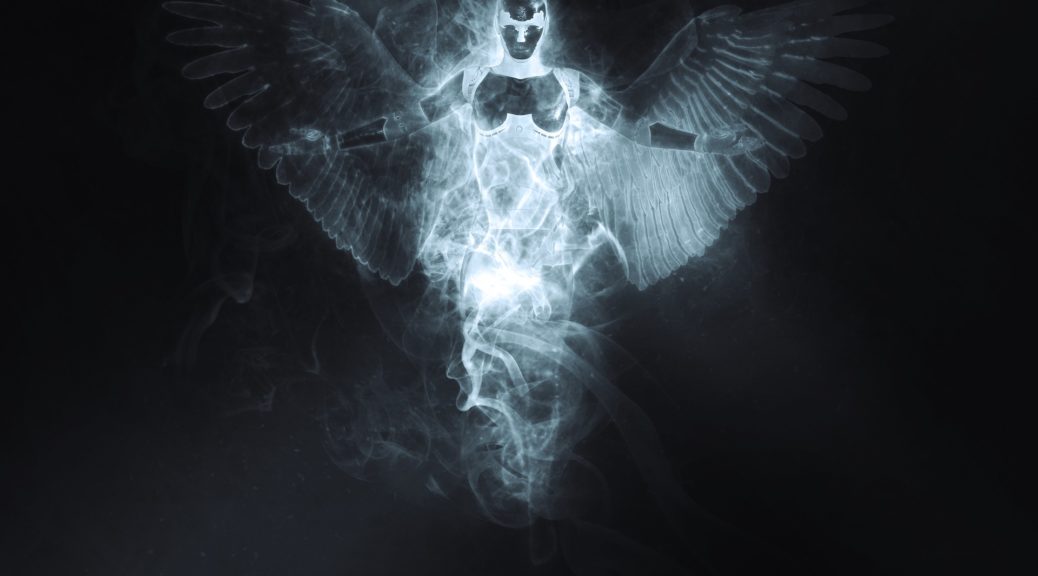
 supernatural beings. The concept of the angel, that is a messenger of the gods, goes back a fairly long ways in history. The concept isn’t linked just to the Abrahamic beliefs. The word, “angel,” comes from the Greek word,
supernatural beings. The concept of the angel, that is a messenger of the gods, goes back a fairly long ways in history. The concept isn’t linked just to the Abrahamic beliefs. The word, “angel,” comes from the Greek word, ![Carol M. Highsmith [Public domain], via Wikimedia Commons](https://www.rationalheathen.com/wp-content/uploads/2018/08/Snake-oil_salesman_Professor_Thaddeus_Schmidlap_at_Enchanted_Springs_Ranch_Boerne_Texas_USA_28650a-200x300.jpg) The concept of communing with angels and archangels doesn’t seem that farfetched to me, as I’ve noted. But the concept of charging people a monthly fee for their insight sends off warning bells as being a charlatan. They claim that people won’t believe their message if they don’t charge something, but getting rich off advice given by the minions of a poor Jewish carpenter seems a bit hypocritical. Okay, a lot hypocritical.
The concept of communing with angels and archangels doesn’t seem that farfetched to me, as I’ve noted. But the concept of charging people a monthly fee for their insight sends off warning bells as being a charlatan. They claim that people won’t believe their message if they don’t charge something, but getting rich off advice given by the minions of a poor Jewish carpenter seems a bit hypocritical. Okay, a lot hypocritical. Yes, the runes are the runes. They may or may not tap into a god’s psyche. And one could claim, I suppose, that you spent umpty umpty bucks becoming a channeler. You know how much training I had with the runes? Zilch, other than books. You know how much training I had contacting gods? Yep, zilch, nada, none. And yet, I’ve gotten some interesting contacts.
Yes, the runes are the runes. They may or may not tap into a god’s psyche. And one could claim, I suppose, that you spent umpty umpty bucks becoming a channeler. You know how much training I had with the runes? Zilch, other than books. You know how much training I had contacting gods? Yep, zilch, nada, none. And yet, I’ve gotten some interesting contacts.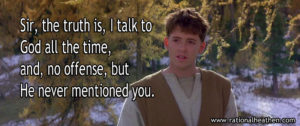 For one thing, I don’t believe in the Christian god, and if he does exist, he’s not the god the Christians think he is. So, the angels and archangels could be damn near anyone or anything. Hels bells, it might even be a malevolent spirit. If I hazard a guess, I think they’re probably talking to a wight, if they’re talking to anything.
For one thing, I don’t believe in the Christian god, and if he does exist, he’s not the god the Christians think he is. So, the angels and archangels could be damn near anyone or anything. Hels bells, it might even be a malevolent spirit. If I hazard a guess, I think they’re probably talking to a wight, if they’re talking to anything. For those getting into Heathenism, and for those who have been in Heathenism some time, it’s important to recognize when someone is blowing smoke up your ass. (As an aside, this term actually comes from an attempted “cure” by blowing smoke up someone’s ass. I know, TMI.) Basically if someone is demanding lots of money for something that isn’t particularly well defined, such as prognostication, you may want to ask a lot of questions. Questions include:
For those getting into Heathenism, and for those who have been in Heathenism some time, it’s important to recognize when someone is blowing smoke up your ass. (As an aside, this term actually comes from an attempted “cure” by blowing smoke up someone’s ass. I know, TMI.) Basically if someone is demanding lots of money for something that isn’t particularly well defined, such as prognostication, you may want to ask a lot of questions. Questions include:
 It’s been about six years since Tyr and Thor first entered my life as Norse gods and I’ve entered Heathenry. (Tyr has been in my life for years, only I didn’t recognize him.) I’ve been thankful they’ve done so because they’ve offered a a new perspective on my life that I had not gotten any other way. I still deal with a number of really stupid issues due to Christianity that I brought with me, but I can feel a certain amount of healing going on that I just didn’t have with the other religions, and lack of religion.
It’s been about six years since Tyr and Thor first entered my life as Norse gods and I’ve entered Heathenry. (Tyr has been in my life for years, only I didn’t recognize him.) I’ve been thankful they’ve done so because they’ve offered a a new perspective on my life that I had not gotten any other way. I still deal with a number of really stupid issues due to Christianity that I brought with me, but I can feel a certain amount of healing going on that I just didn’t have with the other religions, and lack of religion.
 Even if we somehow magically figured out everything about Heathenry in the ancient times, would we really want to mimic it? If you say “yes” then apparently you want to bring back human sacrifice, and
Even if we somehow magically figured out everything about Heathenry in the ancient times, would we really want to mimic it? If you say “yes” then apparently you want to bring back human sacrifice, and